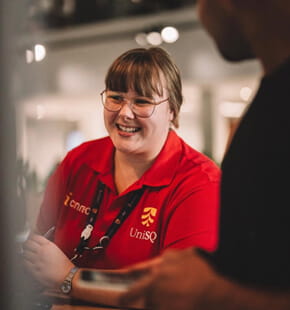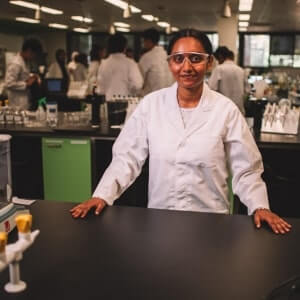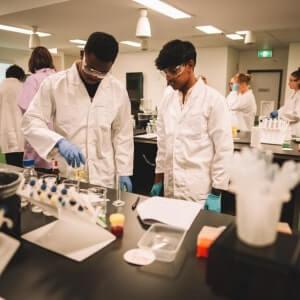Explore Medical Sciences degrees
Undergraduate (your first degree)
An undergraduate degree is an academic program of study that leads to a qualification, such as an associate degree, diploma or bachelor's degree. It's typically the first degree you undertake when entering university or an additional degree you can take on if changing your career path.
- Toowoomba
- External
- Feb, Jun, Sep
- Toowoomba
- External
- Feb, Jun
- Toowoomba
- External
- Feb, Jun, Sep
- Toowoomba
- External
- Feb, Jun, Sep
- Toowoomba
- Feb
- Springfield
- Toowoomba
- Online
- Feb, Jun, Sep
- Toowoomba
- External
- Feb, Jun
- Toowoomba
- External
- Online
- Feb, Jun, Sep
Research (higher degrees by research)
Research degrees are master's or doctorate/doctoral programs centred on in-depth study within a specific field, allowing you to conduct highly specialised research under the guidance of expert supervisors.
Studying at UniSQ
Frequently asked questions
A degree in medical laboratory science and pathology from UniSQ can lead to a good career offering many possibilities. You could pursue roles such as:
- medical laboratory technologist or technician
- research associate in a laboratory setting
- laboratory manager or supervisor
- pathology assistant
- forensic laboratory technician
- public health laboratory scientist
- molecular biologist.
We offer opportunities to engage in hands-on learning. Many of our medical laboratory science degrees include practical experience, clinical placements and residential schools for practical and interactive experiences. UniSQ's strong connections with Queensland Health and commercial pathology providers ensure that you gain up-to-date knowledge and have access to state-of-the-art laboratory facilities.
Depending on the degree you choose, you may undergo structured placements in operational pathology laboratories across Australia, totalling 48-80 days. These practical experiences provide invaluable real-world exposure and enhance your skills in a professional laboratory setting.
At UniSQ, the Bachelor of Biomedical Sciences (Medicine Pathway) is a direct route toward a medical career. By completing the degree in three years with at least a 5.0 GPA, you'll gain entry into The University of Queensland’s Doctor of Medicine (MD) program delivered through the UQ Rural Clinical School in Toowoomba.
This pathway supports training in regional settings and is part of the collaborative effort among UniSQ, UQ, Darling Downs Health, and South West Hospital and Health Service, making it ideal for students passionate about rural health impact.
UniSQ understands the need for flexibility to balance your education with other commitments. We provide a range of study options, including on-campus, external, and online which gives you the option to learn your subject theory where and when it suits you. As an external student, you’ll experience the same level of support and opportunity to connect with others.
You can also adjust your sciences degree enrolment to meet your needs. Take one subject at a time, or study extra subjects when life allows.
Take your first step

UniSQ is collecting the personal information on this form for support for students and prospective students and for marketing purposes. By submitting this form, you consent to the terms of UniSQ's marketing privacy statement. Further information concerning privacy is available.
Welcome aboard! We've got your details.
Something doesn't look right. Try that one again.


